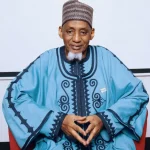NCC, Etisalat, ALTON, Others List Gains of a Connected Nigeria
 Information and Communications Technology (ICT) stakeholders have shown the way on how to improve on the Nigerian digital life ecosystem so as to align it with best global practice and improve on national security and economy.
Information and Communications Technology (ICT) stakeholders have shown the way on how to improve on the Nigerian digital life ecosystem so as to align it with best global practice and improve on national security and economy.
The stakeholders who spoke at eWorld Forum recently include the Executive Vice Chairman of the Nigerian Communications Commission (NCC), President of the Nigerian Computer Society (NCC) Professor Sola Aderounmu, Chairman of Teledom, and former President of the Association of Telecommunications Companies of Nigeria (ATCON) Dr Emmanuel Ekuwem, Chairman of Association of Licensed Telecom Operators of Nigeria (ALTON) and Director of Digital Business at Etisalat, Adia Sowho.
According to the top ICT stakeholders, if Nigeria embraces the digital life in all its aspects, the country would be able to face its security challenges, improve on the economy and ensure that all are involved in digital life ecosystem.
There was an agreement amongst them of the need to provide the right technology mix; infrastructure, networks and agency platforms and policy framework that are necessary for the achievement of the talked about digital life.
Danbatta, who was represented by the Director of Public Affairs, Tony Ojobo, was the first to take the floor when he assured that the regulator is expediting actions to ensure development of the country’s broadband infrastructure target. Broadband is one of the main enabler for achieving a country’s digital life expectations.
Right infrastructure and networks
Danbata said that broadband is getting global attention as the next big thing that will not only drive communications, but the global economy of the future. In his view, broadband also occupies a very prominent space for the future of either bridging the digital divide or enlarging the digital inclusion.
”We are in a hurry to catch up with this desirable objective and therefore putting every effort on the table to ensure that we succeed”, Danbata said.
Currently, broadband penetration in Nigeria is estimated at 10 percent broadband, a position seen as far from the 30 percent target proposed in 2013 by the National Broadband Plan developed to promote nationwide spread of high-speed Internet services.
Danbatta believes that the vision is achievable underscoring that “this is why it occupies a very important place in the 8-Point Agenda of my administration, which have been sufficiently discussed with the media, the key stakeholders and even the international community.”
He assured that his team will strive to ensure Nigeria is not left out of broadband as” we are making every effort that will make our citizenry to enjoy the full benefits of broadband in the foreseeable future.”
One of such initiatives is the proposed auction of six slots of 2.6GHz frequency spectrum scheduled for May 16, this year in Abuja.
Winners of these auctions are expected to achieve nationwide roll out for wholesale and retails wireless broadband services across the country “within a couple of years.”
According to Danbatta,”we hope this will energise competition at that level and force some of them who are resting on their oars in this segment of the market to wake up.”
”We are aware that the market data provisioning market is thriving with more than 97 million Nigerians being very active on the Internet. Social media platforms are being fully employed in all segments of the Nigerian market. Online businesses and online shopping, hotel bookings, online malls are all on the top gear.”
According to him the Infrastructure licenses, of which two were already issued for Lagos and North Central Zones, are being refreshed for the provision of similar licenses for other remaining zones as already earmarked by the Commission.
”We are all aware that we have some form of broadband in the existing networks, which are limited sometimes by location. They may not at the level desired of the current speed of broadband but we trust that the mobile service providers in Nigeria have what it takes to optimize their networks and deploy infrastructure to upgrade their services”, Danbatta said.
”As a regulator that is very much in tune with the environment under which services are delivered in Nigeria, we have also engaged in a number of interventions, and advocacies, aimed at easing some of the many challenges confronting the industry. Cases of right-of-way and multiple taxations are very topical in this direction. We are engaging some of the key stakeholders that are critical to resolving some of these challenges”, he added.
In her contribution Director, Digital Business at Etisalat Nigeria, Adia Sowho, canvassed four key elements that would ensure that Nigeria achieves the much desired digital financial services and inclusion and align it with the emerging global trend.
For best practice in healthy and robust Digital financial services, Sowho said there must be standards for money exchange across operators, agents and products, there should be distribution network that accepts and process clients’ transactions and range of products that address the key pain points and creates value in the community.
She said stakeholders, including regulators, telecommunication companies and banks, will need to evolve to stay relevant. According to her the regulator needs to intervene to foster the right conditions for collaboration in the digital financial services ecosystem, Telcos would have to continue to provide the right tools, such as SmartPhones and mobile broadband network that radically changes how customers expect to interact with financial services, while the banks need a new client-centric and digital mindset to increase customer base and deposits while reducing cost to acquire and serve.
The future of digital financial services, which includes digital banking, digital wallet and digital commerce, is imminent and this could only be achieved and maximize benefits through new partnership models driven by customer and merchant needs.
To achieve the goal of the new digital age MNO Assets which include their technology platforms, distribution channels, support services, mobile tools, security platforms and customer insight are core enablers.
Noting that the internet, mobile devices are radically changing how customers interact, Sowho said however that not all providers are at the same stage of this digital transformation and not all will proceed along the same path at the same pace but the direction is clear.
According to her the transition to a fully digital financial services inclusion which includes integrating and controlling cost in Multichannel setting will not be easy but incumbent providers and traditional intermediaries must upgrade to stay relevant or lose out new financial tech companies.
Jide Awe, Chairman of Conferences at NCS, who represented Aderounmu said fresh innovative thinking, knowledge and innovation culture is essential to creating an inclusive, healthy, forward looking digital nation.
Priorities areas of focus, he said should include giving practical action to policies, as best practices in policy implementation matter and gathering of data and statistics to measure progress as strong monitoring, evaluation and reporting on targets and recommending and implementing corrective action, where required.
According to him technology should be used to address local needs, promote local innovation, while technology champions with outstanding impact in priority areas should be celebrated and government should form strategic partnership with the private sector and adopt multi-stakeholder and collaborative approach in policy formulation and implementation.
He said there should be a coordinated combination of digital public service delivery, online citizen engagement and government automation through e-government to improve government efficiencies, block leakages and corrupt practices, track activities and enhance government revenue.
National security and local content
On national security, Awe said 21st Century Concept of National Security has gone beyond military security and now involve innovations in technology to address counterterrorism, cyber security, smart policing and identity management.
Also speaking at the event, Engr Gbenga Adebayo, Chairman of Association of Licensed Telecommunications Operator of Nigeria (ALTON), asked stakeholders to protect telecoms infrastructure because of their critical role for the Nigerian economy.
He underscored the pivotal role telecommunications plays in the lives and economic well-being of any country.
”The protection of our infrastructure is key, the industry has developed a lot of infrastructure which needs to be protected, therefore we must be able to protect this infrastructure in order to support other sector of the economy”, Adebayo told the forum.
The ALTON Chairman wants Nigeria to take a cue from the recent Brussel attack in Belgium where the identity of perpetrators of the attackers have been seen because they have the infrastructure and it was protected.
”The unfortunate incident in Belgium, if you follow the story, the picture of the bombers has been gotten. Why? This is because they have an infrastructure that have been protected”, Adebayo told the forum.
He however invite the media to play a vital role of propagating good contents about the telecoms sector noting that “nobody can report about the sector expect the media”
According to him, “we understand the powers of the pen and we know that the media will stand to be counted when we discuss the progress made in this industry. We therefore will continue to count on the media for the support”.
In his intervention, Dr Emmanuel Ekuwem, Chairman of Teledom International asked government to focus on capacity-building in human capital growth, supply chain development and partnership with local organizations and businesses for talent and infrastructure development and support.
He believe that Nigeria has got the required skills and talent to function better than their foreign counterpart when their services are engaged in any field of endeavors.
”For Nigerians, that means hiring local staff and have Nigerian leaders provide development opportunities to Nigerian SMEs”, he said.
”There is no software that runs on any device that cannot be developed by our indigenous companies”, Ekuwem added.








